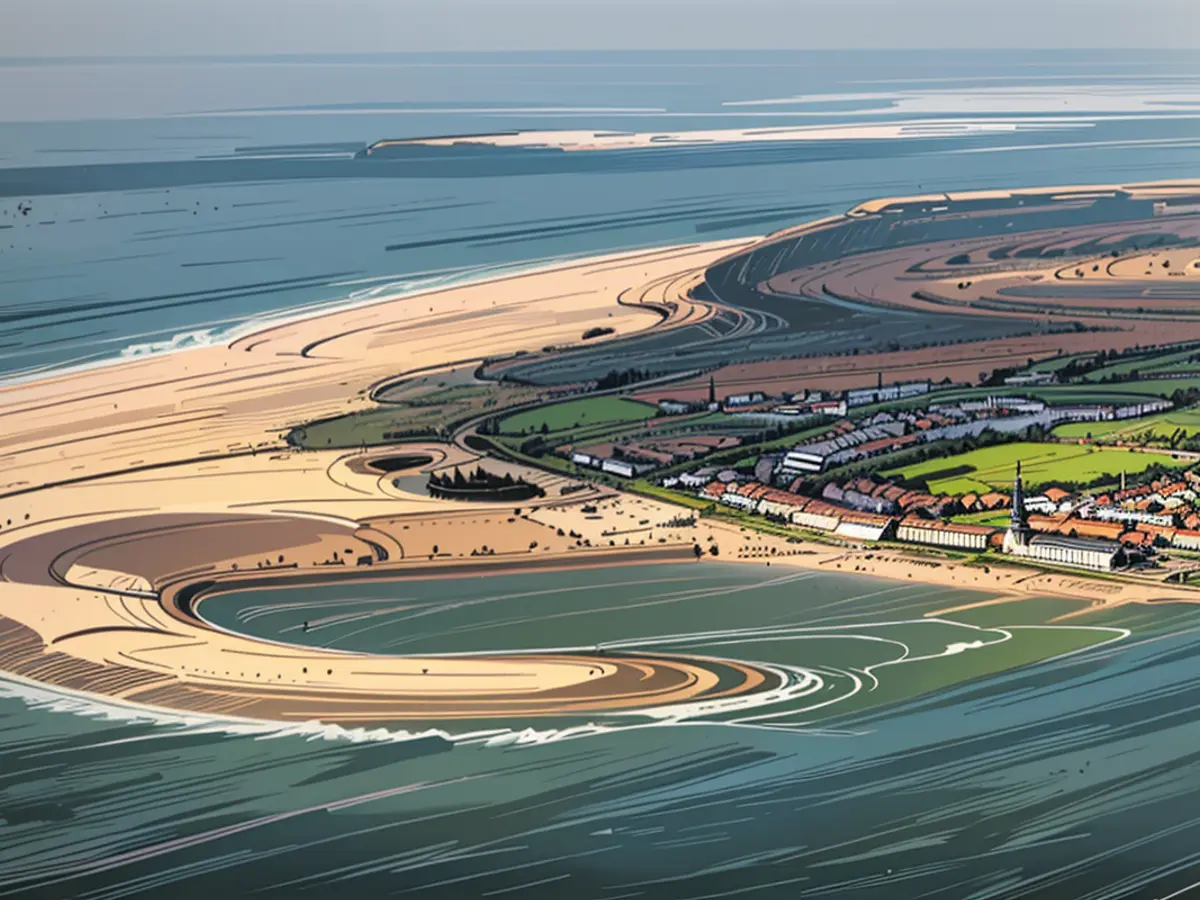- Ongoing legal conflict surrounds the proposed gas extraction project
The ongoing legal feud over the proposed gas extraction in the North Sea, specifically on the island of Borkum, remains unresolved. As reported by the Administrative Court in Oldenburg, a power cable installation is currently on hold, following their announcement. No appeal to challenge this court decision has been filed, thereby making it legally binding.
Germany's Environmental Aid (DUH) successfully submitted an urgent application contesting the approval of the cable. A full court trial for this lawsuit is now underway, with the exact schedule yet to be disclosed according to a court spokeswoman.
The intended purpose of the power cable is to supply a production platform for Dutch energy company One-Dyas, aiding in their planned commencement of gas extraction through wind energy sourced from the neighboring offshore wind farm, Riffgat. Approval for this cable was granted in 2022 by the Lower Saxony State Agency for Water Management, Coastal Protection, and Nature Conservation, albeit under the condition that One-Dyas compensate nature for the disturbance caused. The agency permitted the company to negatively impact legally protected biotopes.
DUH and various environmentalist groups, including BUND Lower Saxony and the "Clean Air East Frisia" citizens' initiative, lodged their objections and subsequently filed a lawsuit. Concerns regarding the cable's potential to permanently damage valuable underwater biotopes and reef structures have been raised by these environmentalists.
The court decision may potentially delay the project
According to DUH, the cable installation cannot be completed this year, effectively halting gas extraction for at least another year. "This is a positive outcome for nature, climate, and locals impacted," commented Federal Managing Director Sascha Müller-Kraenner. "We will persistently explore every legal avenue to eventually halt this fossil project in the North Sea." However, One-Dyas still intends to initiate gas extraction this year.
Recently, the Lower Saxony state authority granted One-Dyas a 18-year permit for the controversial drilling, which will extend from the Netherlands underneath the seabed into German territory near the Wadden Sea National Park. Nonetheless, an agreement between Germany and the Netherlands is required preceding gas extraction.
Federal Minister of Economics Robert Habeck (Greens) has expressed enthusiasm to await any potential court rulings. It will only be determined afterwards whether the agreement with the Netherlands will be signed, once relevant judicial decisions have been reached. Numerous organizations have declared their intention to take legal action against the approval of gas extraction.
The environmentalists objecting to the power cable installation argue that it could permanently damage valuable underwater biotopes and reef structures, as they are of circular cross-section. Given the ongoing court trial, the completion of the cable installation and subsequent gas extraction through wind energy may be further delayed.








